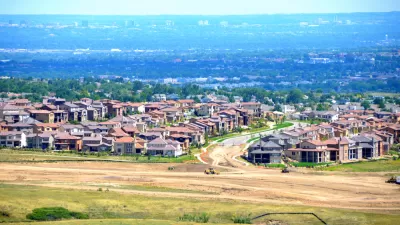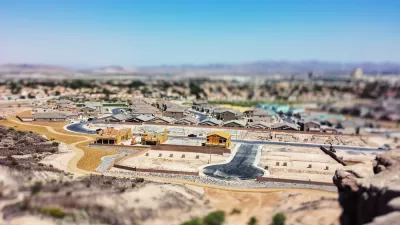Jed Kolko, former Chief Economist and VP of Analytics at Trulia, and Joe Cortright of City Observatory dug deep into a debate that gets at the heart of recent trends in how and where the United States works.
Jed Kolko followed the big news earlier this month about GE moving its headquarters to Boston from Fairfield County CT with a data-crunching post that addresses the question of whether GE's decision is "part of a larger trend of the urbanization of economic activity?"
That narrative is common among the media and millennials-focused thinking about cities like San Francisco and Seattle. According to Kolko, that storyline is backed up by evidence "that since 2007 job growth in large metropolitan areas has strongly outpaced job growth in the rest of the U.S." For the record (this will matter later), the previous link refers to a City Observatory report titled "Surging City Center Job Growth," as described in a blog post by Joe Cortright.
Kolko, however, presents an alternative narrative, produced by a "more nuanced" look at the data." To sum up his point, Kolko writes: "Overall, while non-metropolitan areas have suffered, and the urban core of metropolitan areas have rebounded in recent years, the long-term trend remains that suburbs of large metros have the fastest job growth." Kolko also provides point-by-point reasoning behind his conclusions.
Joe Cortright, writing for City Observatory, penned a response to Kolko's post on the very next day, drawing an entirely different set of conclusions from the same data, namely:
- "Central counties are accelerating; suburban counties have decelerated"
- "We’ve had two economic cycles since 2000, and central counties are doing better in this second cycle"
- "Even within the latest cycle, central counties are accelerating"
Cortright's position on the data, then, is summed up:
In a way this is a 'half full, half empty' debate. Jed’s telling you the city center jobs glass is still half empty; we’re saying it’s half full—and that it was essentially empty in the last cycle (2000 to 2007). Not all job growth is happening in city centers—that’s not our point—but it seems clear that in this economic expansion, unlike the last one, large metro economies and central cities are leading the way.
As a follow up to his original post, Kolko performed some of the same data analysis, but for wage growth rather than job growth. Looking at wage growth produced similar conclusions for Kolko as well, but it was not a response to Cortright. The post also continued a methodological complaint voiced by Cortright: that counties are a unit for producing reliable conclusions about these comparisons.
Finally comes a piece from Justin Fox in BloombergView, in which he shares the data and conclusions about job growth as interpreted by Kolko. Fox made the additional connection, however, of crediting Kolko's analysis as a reaction to the aforementioned study published last year by City Observatory titled "Surging City Center Job Growth" [pdf]. Fox's additional conclusion after examining all this data: move to Brooklyn if you're looking for work.
FULL STORY: City Limits: How Real is the Urban Jobs Comeback?

Alabama: Trump Terminates Settlements for Black Communities Harmed By Raw Sewage
Trump deemed the landmark civil rights agreement “illegal DEI and environmental justice policy.”

Study: Maui’s Plan to Convert Vacation Rentals to Long-Term Housing Could Cause Nearly $1 Billion Economic Loss
The plan would reduce visitor accommodation by 25% resulting in 1,900 jobs lost.

Planetizen Federal Action Tracker
A weekly monitor of how Trump’s orders and actions are impacting planners and planning in America.

Wind Energy on the Rise Despite Federal Policy Reversal
The Trump administration is revoking federal support for renewable energy, but demand for new projects continues unabated.

Passengers Flock to Caltrain After Electrification
The new electric trains are running faster and more reliably, leading to strong ridership growth on the Bay Area rail system.

Texas Churches Rally Behind ‘Yes in God’s Back Yard’ Legislation
Religious leaders want the state to reduce zoning regulations to streamline leasing church-owned land to housing developers.
Urban Design for Planners 1: Software Tools
This six-course series explores essential urban design concepts using open source software and equips planners with the tools they need to participate fully in the urban design process.
Planning for Universal Design
Learn the tools for implementing Universal Design in planning regulations.
Caltrans
Smith Gee Studio
Institute for Housing and Urban Development Studies (IHS)
City of Grandview
Harvard GSD Executive Education
Toledo-Lucas County Plan Commissions
Salt Lake City
NYU Wagner Graduate School of Public Service





























